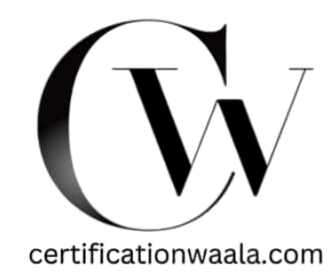Certification Waala
Import/Export Licence (IEC Certificate)
In this day and age of cutthroat competition, everyone wants to expand their business beyond the confines of the domestic market. However, doing business on a global scale is not for everyone. Before going global, you must follow several procedures and laws in place, as well as obtain various registration and licenses. When considering importing or exporting from India, one of the prerequisites is an IEC (Import Export Code) license. It is also referred to as the Importer-Exporter Code.
Anyone looking to start an import/export business in the country must obtain an IEC (Import Export Code). The DGFT is in charge of issuing it (Director General of Foreign Trade). IEC is a 10-digit code that is valid for a lifetime. Generally, importers cannot import goods without the Import Export Code, and exporters cannot benefit from the DGFT for the export scheme, etc. without the IEC.


